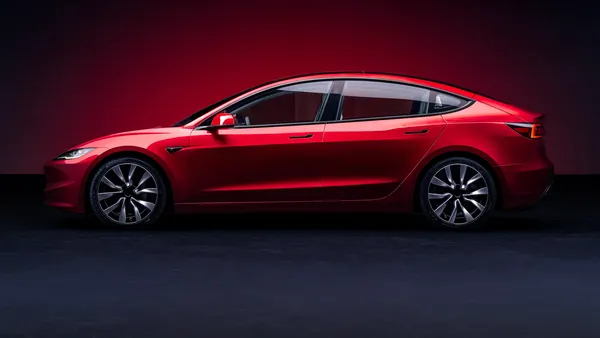Editor's note: This story is part of the WardsAuto digital archive, which may include content that was first published in print, or in different web layouts.
Our business is fueled by myths loosely mixed with just enough evidence that few dare to say what's fact and what's fiction.
Nonetheless, recent headlines suggest that Wall Street analysts are getting dangerously close to uncovering some of the automotive industry's most crippling false beliefs, many of them affecting dealers. What follows are the top 10 myths I'd most like to see exposed.
Myth No.10: Car salesmen just want some well-deserved respect. In return they'd be happy to follow up with customers, become students of their manufacturer's programs, and know their products and inventories inside and out. Variable pay (without salary), long hours and few benefits are just the way retail is. The truly professional salesperson understands this and likes it this way.
Myth No.9: Customer satisfaction simply is a matter of top-down respect for customer's rights and the discipline to inspect what you expect. Show me a dealership with poor customer satisfaction, and I'll show you a greedy dealer who doesn't care. Dealers have all the tools they need to get it right. They simply have to want good customer relations more than a fast buck.
Myth No.8: Ad association contributions don't cost the dealership because dealers sell from cost up, passing those charges to vehicle invoices and on to customers. Cooperative advertising costs actually can be profitable to dealers because they reduce salespersons' gross profit incentives, thereby reducing payroll. Ad associations don't reduce a dealer's marketing budget because that's something else.
Myth No.7: General Motors Corp. and Ford Motor Co. are in a slump because they do not like their dealers or their dealer's customers as much as Toyota and Honda like theirs. Toyota and Honda listen carefully to dealers' and customers' needs, thereby insuring win-win-win strategies. GM and Ford could turn their misfortunes around quickly by simply listening more.
Myth No.6: You don't have to invent a great car, it is enough to copy one. “As good as” is “the same as” in the customer's mind. So it is smart to benchmark the best and advertise how similar yours is. Being a product leader is too risky. A few more cup holders, an extra speaker or two and a little more horsepower than the next guy is a sound product strategy. You can always make up any differences with a rebate.
Myth No.5: The mission of a manufacturer's vehicle warranty is to build trust among the consumer, the brand and the dealer by quickly repairing covered components that prematurely break down. Customers who regularly bring their cars into the dealership can expect a dealer to find and repair faulty components before a complaint has been voiced. The trust between that customer and his dealer is the highest priority of the manufacturer for its dealer body.
Myth No.4: Dealer councils are the best way for manufacturers to get honest feedback from their retailers. By supplementing this with the feedback solicited from their own field representatives, auto makers can rest assured they know their dealers' true feelings on important issues.
Myth No.3: Commitments made on a dealer's application reflect a life-long commitment to represent the franchise and are as solid and enforceable as the manufacturer's commitment to support the dealer.
Myth No.2: Volume-tiered incentives for dealers help level the playing field and cause good dealers to find the right motivation to generate healthier business.
And my personal favorite…
Myth No.1: Dealer holdbacks are not interest-free loans to manufacturers. They are a way for dealers to be protected from inner demons.
I don't know if these are among your favorites myths. But there is a reason why many once-proud manufacturing giants are struggling to get above junk-bond status today.
When I was growing up, “junk” came from other parts of the globe. Our domestic producers and their franchises were the pride of the industry. It may seem basic, but I believe a turn-around is as simple as breaking through the myths that chain certain brands to mediocrity and failure.
Peter Brandow is a veteran auto dealer in Pennsylvania and New Jersey.










